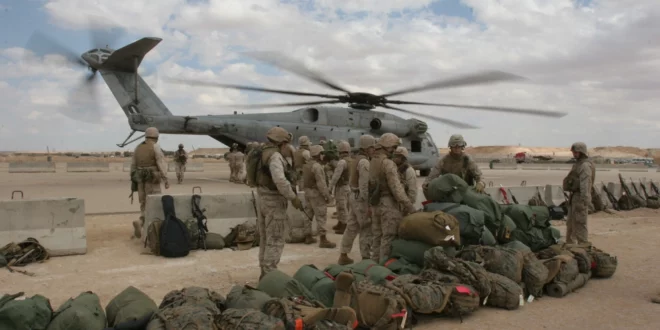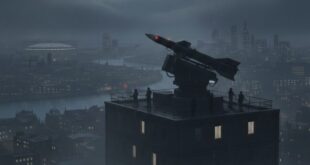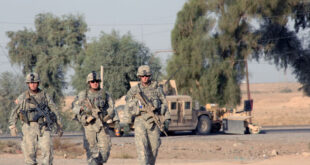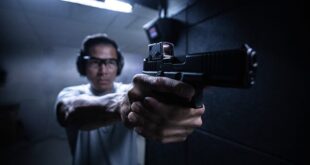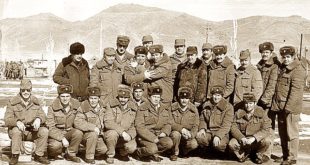by Brian Dykeman, The War Horse
The funny thing about memories is that your brain will let most of them drift off into a place where they only make an appearance if you see a picture, smell a smell, or if a certain song comes on the radio. Then there are those memories that your brain decides it will never let go of. If you asked me about all of my days in Iraq, I could probably spout off two or three memories that stand out, but if you asked me about one specific night shift, I could play it back to you like I am living it all over again.
It started off like any other day. I woke up. I tried to remember how many days it had been since I had taken a shower. It had been a couple, so I decided taking a cold shower was probably a good idea because nobody wants to be the stinky kid. I went back to my room and started to layer up because it had been ridiculously cold recently. My last layer was a pair of tan coveralls, which were actually black on the front and back because nobody realized tan coveralls while fixing helicopters was a terrible idea. No matter how many times I washed them I just couldn’t get the sand and hydraulic fluid mixture to come out.
READ MORE about American helicopter crews.
We took the bus to work, and it started just as every other night shift started for the last six months. We talked smack to the day crew for doing nothing at all, they blamed it on the flight schedule and not being able to touch planes that were safe for flight, and then they went home to eat dinner. The desk sergeant returned from the maintenance meeting and pulled out his six-pack of dry-erase markers. He listed all the aircraft and put a rainbow-colored list of jobs underneath each bird. Each color represented the priority level of the task to be accomplished. They ranged from “You aren’t going home until this is done” to “There is no way you are getting to this anyhow so don’t even worry about it.” Me and another guy who had been there a few years longer than I were assigned a “must have:” to figure out why an engine temperature sensor was not working. We grabbed all of the associated tools and publications and headed out to the bird.
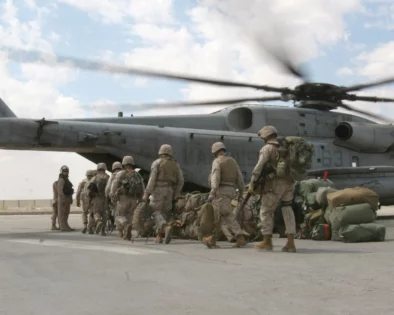
We reached the aircraft—it was the last bird on the line, farthest from the shop and virtually unshielded from the cold winter wind. We opened the books, turned on our headlamps, and got to work. We took some resistance measurements and determined the best course of action. It just so happened the probable cause for the malfunction was a bad transducer pack on an engine. It seemed like an easy enough thing to replace. Five or six hex socket screws and it would come right off, swap on the new one and we’d be ready to go.
The funny thing is, this kind of job never worked out like that. Because the screws were attached to the engine, they expanded and contracted from the heat every time the engine came online and subsequently cooled off. So when you tried to take the screws off, getting them to break loose was usually problematic.
I had five of the six screws off and the last one didn’t want to budge.
“Whatever you do, don’t let that screw head snap off!” the person working with me uttered.
Maybe a half a second went by before we both heard a “snap” and the wrench went flying. I knew immediately what happened. Few things in my life have been better timed than, “Whatever you do, don’t let…”
I started to laugh hysterically, because that is my defense mechanism in uneasy situations.
“I really hope you didn’t just snap that screw off and now you are laughing about it,” he said.
We decided we needed to find the airframes shop to come bail us out of the situation we had created for ourselves. If they couldn’t get the rest of this screw out, we were going to have to replace the whole engine.
We had nothing to do other than to go in and eat “mid rats” (night crew lunch) and hope we were not about to get yelled at by everyone for having to replace an engine. Still, it felt like any other lunch we’d had over the last few months. We had finally graduated from getting fed bacon and rice every day for a month and a half to actually getting real food. We talked about what everyone was working on and possible solutions for the issues on their birds. There was a steady amount of smack talk; that was what generally got us through our day.
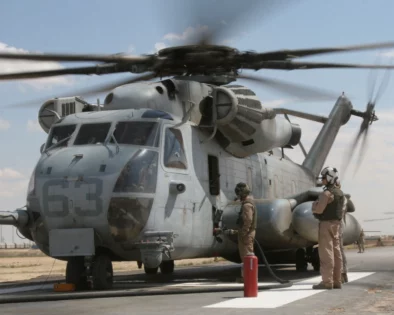
Toward the end of mid rats, an airframe supervisor came over to tell us he got the screw out of the engine. This was the best news I had heard all day. What none of us could have known was we were all about to also receive possibly the worst news of our lives later that morning.
We headed back out to the aircraft and installed a replacement thermocouple so we could continue the troubleshooting process on the engine. Once we installed it, we took some more resistance measurements and determined our three hours of work had done absolutely nothing to change the state of the system. My co-worker asked me to check a connection in an electronics compartment. I opened up the door and looked up to where the connection was supposed to be. I started laughing hysterically (because, as previously mentioned, that is what I do when I don’t know what else to do). Sitting in front of me was a wiring connection disconnected and just dangling there right in front of our faces.
I yelled up to him that I thought I had found the problem. He asked what I meant, and I told him to come look. We both felt a little bit upset that it took us this long to figure out something so obvious, but that is how it works sometimes.
We were just about finished buttoning everything up. I connected the disconnected connector and was about to close the electronics department.
Another member of our shop came out to talk to us. He asked if we had heard anything about why only one of the two aircraft we had sent out came back. This wasn’t super atypical. Perhaps it had a maintenance issue at another airfield; perhaps it was getting fuel and the other one didn’t need fuel because it was going into inspection the next day. No big deal, right? We thought nothing of it; we packed up our tools, our publications, and our broken screw, and we headed back into the shop.
The sun was rising. We walked back to the shop trying to hurry because we knew we were cutting it close to morning meeting time. We busted into the closed door—the door was always open, and we found it strange that for seemingly no reason whatsoever it was closed. As the door swung open, I saw 40 people sitting on the ground looking up at someone addressing the group.
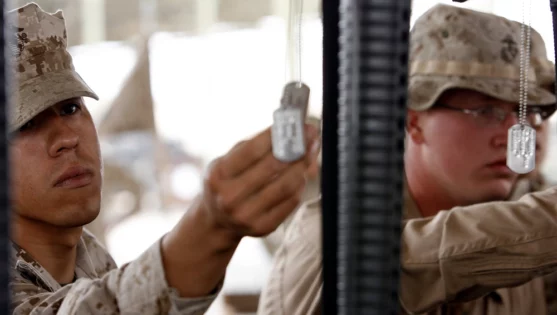
These were faces that I saw every morning, and I knew what each one was supposed to look like. Some were usually happy, some were usually stressed, and others were usually tired.
This morning was different, though. Every single one of these faces looked lost. On any other day of my life, I would have jumped right in and said, “Why the hell is everyone looking up here like their puppy dog just died?” Instead, I looked up inquisitively at the person addressing the room.
“Hey, what’s going on?” I asked.
In the coldest, most detached tone anyone has ever spoken to me in my life, he replied.
“You may have noticed that only one of the birds came back last night,” he said. “Sometime in the early hours of the morning, there was a crash. Everybody is gone.”
My brain decides to keep one other memory floating around clear as day.
It was two days later and we were all at the memorial service. The last two days had sucked, and everyone just quietly went about their business. During the memorial service, the sergeant major ran through roll call. A band detachment member started playing taps. I looked around and saw 300 hundred people in a makeshift auditorium. Three hundred people who, up until that day, I had been led to believe were all superhuman. Every single one of them started bawling. At this point, I realize that no matter what we are led to believe in boot camp, once you strip away all of the hypermasculinity and belief that we are indestructible, in the end, we are all just human.
 Soldier of Fortune Magazine The Journal of Professional Adventurers
Soldier of Fortune Magazine The Journal of Professional Adventurers


